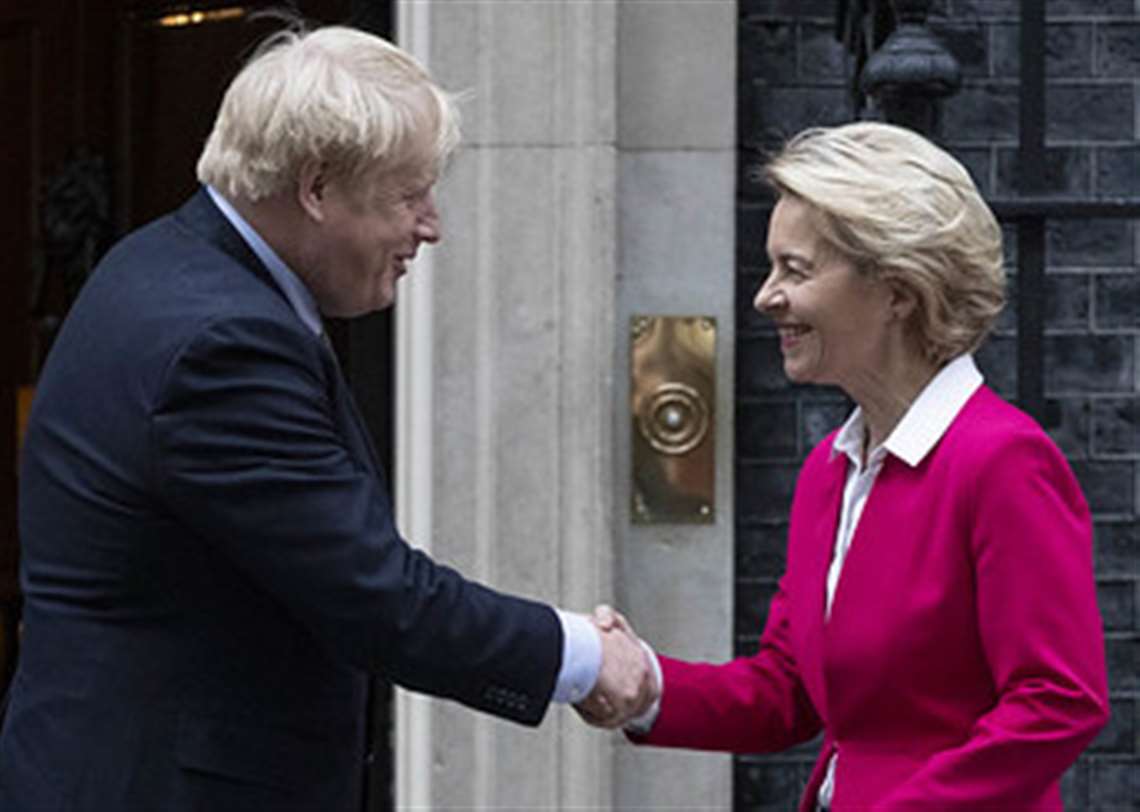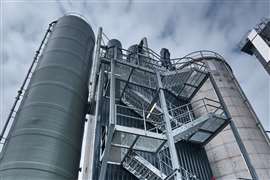UK construction looks to post-Brexit 2021
05 January 2021
Association heads welcome UK-EU trade agreement but also sound notes of caution
 UK Prime Minister Boris Johnson and European Commission President Ursula von der Leyen
UK Prime Minister Boris Johnson and European Commission President Ursula von der Leyen
Construction industry associations have described their relief, following the 11th-hour UK-EU trade agreement reached by the European Commission’s president Ursula von der Leyen and UK prime minister Boris Johnson.
James Butcher, head of policy at the National Federation of Builders, said the agreement would “enable construction companies to continue to reliably forecast the cost and availability of products and materials imported from the EU or comprising components made in the EU.
“The mutual co-operation in respect of reducing technical trade barriers and co-operation at the border will also undoubtedly help to avoid some of the risks of delay and disruption.”
He said, “What this means is that in January we will not see the inflationary shock of tariff and quota introductions or the expected currency depreciation associated with a no-deal. This deal delivers certainty at a time when it is needed most.”
Rob Oliver, chief executive of the UK-based Construction Equipment Association (CEA), sent a New Year message to his organisation’s members in which he said, “We will have a few bumpy weeks working with government on the application of the detail of the UK-EU agreement but at least now we know the direction of travel. Throughout 2020, construction sites have kept working under unprecedented conditions.
“Our priority for 2021,” he added, “is to hold government to their commitment to ‘Build Back Better’ and ensure we have an infrastructure fit for the future. It’s not only about the UK market, of course, as we need to get behind manufacturers’ export effort.”
Oliver pointed out that seven out of every 10 construction machines currently manufactured in the UK will operate within overseas markets.
The CEA has previously pointed out that, with the UK no longer part of the EU, its notified bodies will no longer be recognised in the EU. Construction equipment manufacturers will therefore no longer be able to use their services for product certification, in order to meet the requirements of EU countries.
Alan Vallance, chief executive of the Royal Institute of British Architecture, also sounded a note of caution, following the agreement, saying “hesitation and vagueness around trade in services remains a serious concern”.
He said, “Architects in both the UK and EU were clear about the need for a continued agreement on recognition of professional qualifications, and it is deeply worrying that this does not seem to be part of the deal as it stands.”





